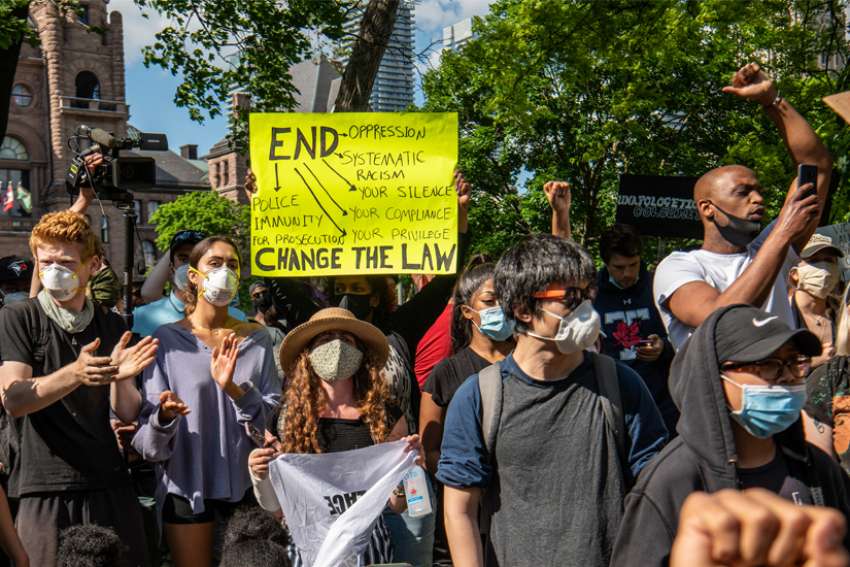Astonishing because the Truth and Reconciliation Commission only five years ago issued a report, after years of abundant publicity, which documented massive abuses in Canada’s Indian residential school system. The TRC process should have led every major institution to conduct at least an informal examination of its own possible racism. If Lucki had not previously thought seriously about the possibility of systemic racism in the RCMP, she now should undergo an intensive process of consciousness-raising about racism in Canada.
Racism is a founding principle of Canada. Settlers moved in, took Indian land, broke treaties negotiated with the First Peoples, imposed racist institutions, including the Indian Act, and paid little heed as many Indigenous people live in squalor to this day. With a never-ending parade of allegations of police brutality against Indigenous people, the commissioner would be grossly irresponsible to ignore the possibility of systemic racism in the force she heads.
Over the past 50 years, study after study has documented entrenched discrimination in Canada’s systems and institutions.
Yet, in spite of inter-generational trauma of forced relocation, residential schools, the Sixties Scoop, loss of language, culture, spirituality, traditional ways of life and endless discrimination, many First Nations, Metis and Inuit people have strong families, stable employment and are embracing their traditions. They are tremendously resilient, but the playing field is far from even.
One-third of Indigenous people have not completed high school. Only eight per cent of those between 25 and 64 have a university degree compared with 23 per cent of non-Indigenous people. About two-thirds of young Indigenous people on reserves attend schools run by their First Nations, schools that are seriously underfunded compared with those in predominantly white communities.
On-reserve infant mortality rates range from three to seven times that of the general population. The health of Indigenous people on reserves is adversely affected by substandard housing, high cost of food, a frequent lack of clean water and poor access to health care. At age one, life expectancy for Indigenous people is nine to 10 years less than for non-Indigenous people.
The suicide rate among Indigenous people is at least three times that of the rest of the population. Other problems include lack of job access and economic development and higher incarceration rates. Indigenous people in Canada are highly disadvantaged.
Canadians do not see ourselves as a racist people living on stolen land, and the RCMP does not see itself as a racist police force which routinely treats Indigenous people more harshly than non-Indigenous. Give some credit to Lucki and Alberta’s Deputy Commissioner Curtis Lablocki for changing their view and stating that systemic racism does exist in the RCMP. However, their words must be backed up with action.
The RCMP is most unlikely to clean up its act without an external investigation into its racism and a stronger form of public accountability. The Criminal Trial Lawyers’ Association of Alberta has called for the establishment of an independent body to oversee public complaints about RCMP actions. The existing civilian oversight body has no power to conduct investigations or to fire police officers, but can only make recommendations to the RCMP commissioner. Everything stays within the family, a situation familiar to Catholics who watched clergy sexual abuse scandals unfold.
The nature of group dynamics is that any group, such as a police force, which regularly faces aggressive and even life-threatening situations will develop group cohesiveness by, among other means, the creation of an external enemy. The group will overlook its own shortcomings by focusing attention on the supposed deficiencies of those outsiders. It may even adopt a war-like attitude to the enemy. Police forces should be aware of that tendency and make it a top priority to prevent their members from demonizing and brutalizing any out-group.
The federal government has the responsibility to eliminate systemic racism in national organizations. Government leaders should eliminate cozy relationships with RCMP brass. Instead of commissioning still more reports, the government must take action to end racism in the force and to make the RCMP transparent and accountable.
(Argan lives in Edmonton.)


